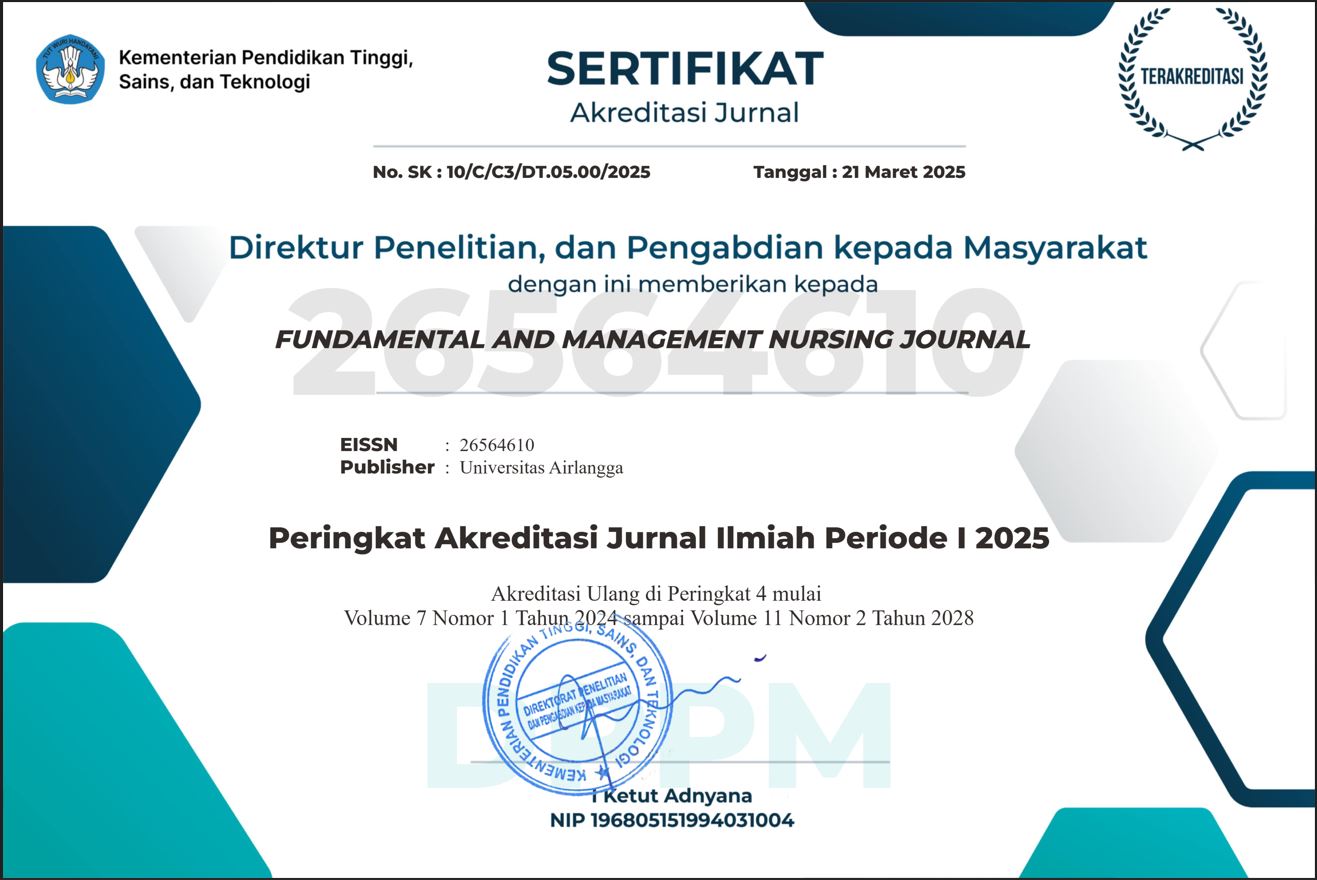Bridging the Gap: Assessing Nurses' Safe Handling and Administration of Chemotherapeutic Drugs in a Tertiary Health Facility, Benin City, Nigeria
Introduction: The administration of chemotherapeutic drugs requires specialized knowledge and skills to ensure optimal patient outcomes and minimize risks. While global guidelines emphasize the importance of safe chemotherapy administration, there is a lack of context-specific data on the knowledge and practices of nurses in tertiary health facilities in Benin City. This study addresses the gap by providing empirical evidence on their competencies and challenges. Hence this study aimed to assess the knowledge and practices of safe handling and administration of chemotherapeutic drugs amongst tertiary health facility, Benin City.
Methods: The study adopted a descriptive cross-sectional study design among randomly selected 278 nurse working in the selected hospital. A researcher developed structured validated questionnaire was used as instrument of data collection. Data collected was analyse using descriptive statistics while hypothesis tested using multiple logistic regression at 5% level of significant. Data analysis was done using the IBM Statistical Package for Social Sciences (SPSS) version 28.0 for windows.
Results: Overall 17% of participants had poor knowledge, and 63% had fair knowledge. More than half (51%) exhibited poor practice. Most significant factors supporting the safe handling and administration of chemotherapeutic drugs are Training and Certification (3.94), Incident Encounters (3.73), Protocol Adherence (2.93), and Utilization of PPE (2.82). Being married: (OR = 1.136 (95% C.I: 1.10–3.83, p = 0.7369), Female (OR = 4.90, 95% CI: 0.23–3.54, p = 0.479), 18–34 years (OR = 7.03, 95% CI: 0.06–8.28, p = 0.298) , Bachelor Degree (OR = 7.69, 95% CI: 0.05–7.10, p = 0.174) have higher odds of exhibiting a higher level of practice compared to other categories but not statistically significant.
Conclusions: The study found that nurses have moderate knowledge and practice levels in handling chemotherapeutic drugs but still face significant gaps. It highlights the need for targeted interventions, in-service education, and institutional policies to improve competency and ensure safe chemotherapy administration.
1. INTRODUCTION
Cancer is a complex disease characterized by uncontrolled cell growth and division, with some cancers forming visible tumors while others, such as leukemia, do not(Angahar, 2017). As a major global health concern, cancer ranks as the second leading cause of death worldwide, accounting for millions of new cases and fatalities each year(Purkayastha et al., 2018). The burden of cancer continues to rise, with over 10 million new cases and approximately 6 million deaths reported annually(Abdullah et al., 2018). Projections from the World Health Organization (WHO) indicate that by 2050, cancer incidence will exceed 35 million new cases per year, with developing and middle-income countries experiencing the highest increases due to urbanization, sedentary lifestyles, and demographic changes(W.H.O., 2024).
Among the primary treatment modalities for cancer, chemotherapy remains a cornerstone in oncology care. Chemotherapeutic drugs work by targeting rapidly dividing cells to inhibit cancer progression, administered through various routes such as intravenous infusion, oral tablets, or injections, depending on the cancer type and stage(Cohen et al., 2020). However, chemotherapy administration is associated with significant risks for both patients and healthcare providers. The complexity of handling these drugs requires specialized knowledge and skills to ensure optimal patient outcomes, minimize medication errors, and prevent occupational exposure to hazardous substances. Nurses play a crucial role in chemotherapy administration, overseeing drug preparation, dosage calculation, adverse effect monitoring, and supportive care. Despite their central role in ensuring safe handling practices, research indicates persistent knowledge gaps and deficiencies in chemotherapy administration among nurses.(Kapucu et al., 2017)found that oncology nurses had moderate knowledge (≥50%) about catheter care during chemotherapy, emphasizing the need for continuous, evidence-based education to improve their competency. Similarly,(Saker et al., 2022)identified significant knowledge gaps, particularly regarding chemotherapy’s impact on wound healing and healthy cells, reinforcing the need for comprehensive training programs.
Furthermore, studies have examined the effectiveness of educational interventions in improving chemotherapy administration skills among nurses.(Khan et al., 2012)demonstrated that while training programs significantly enhanced nurses’ technical knowledge, their attitudes toward chemotherapy handling remained unchanged, highlighting the challenge of addressing behavioral components in clinical practice.(Nwagbo et al., 2017)also reported high knowledge levels about occupational safety among oncology nurses but noted persistent gaps in specific areas, such as handling contaminated clothing and proper decontamination techniques. Similarly,(Mamdouh Zakaria et al., 2022)found that although 60% of nurses had good knowledge of chemotherapy administration, their practical application, particularly in patient verification and adherence to administration protocols, was inadequate. These findings collectively emphasize the critical need for targeted interventions to bridge the gap between theoretical knowledge and actual practice in chemotherapy administration. Unsafe chemotherapy handling not only compromises patient safety but also exposes healthcare professionals to hazardous drug-related risks. Nurses, in particular, face significant occupational hazards, including exposure to cytotoxic agents, which can lead to long-term health complications. Given the increasing demand for chemotherapy services, ensuring nurses’ competency in safe drug administration is essential for protecting both patient and occupational health.
Despite extensive research on chemotherapy safety practices in various regions, there is limited evidence specific to Edo State, a key center for oncology care in Nigeria’s South-South region. The lack of localized data on nurses’ knowledge and adherence to safety protocols highlights a critical gap that this study seeks to address. By identifying deficiencies in chemotherapy handling practices, this research aims to provide evidence-based recommendations for improving training programs, enhancing institutional policies, and promoting standardized safety protocols. Ultimately, strengthening nurses’ competencies will contribute to better patient outcomes, reduced occupational risks, and overall improvements in cancer care delivery. Therefore, this study aims to assess the knowledge and practices regarding the safe handling and administration of chemotherapeutic drugs among nurses in selected health facilities in Benin City.
Specific objectives
- To evaluate the level of knowledge among nurses in selected health facilities regarding chemotherapeutic drugs, handling and administering them to patients.
- To assess the level of practice among nurses in selected health facilities in the safe handling and administration of chemotherapeutic drugs.
- To identify the perceived factors that support the practice of safe handling and administration of chemotherapeutic drugs among nurses in selected health facilities.
- To determine the sociodemographic predictor of knowledge regarding safe handling of chemotherapeutic drugs and practices among the nurses.
2. METHODS
2.1 Research Design/Setting
This study used a descriptive cross-sectional correlational design to assess nurses' knowledge and practices in handling chemotherapeutic drugs. The descriptive aspect captures current knowledge and safety practices, while the cross-sectional approach provides a snapshot at a single point in time. The correlational component examines relationships between variables, such as demographic factors and adherence to safety protocols. This design is appropriate for identifying knowledge gaps, informing targeted interventions, and guiding institutional policies to improve chemotherapy safety. The research was conducted at the University of Benin Teaching Hospital (UBTH), a major healthcare tertiary institution with a 900-bed capacity. It serves as a referral, diagnostic, teaching, and healthcare centre with various units, including Clinical Oncology and Radiotherapy.
2.2 Population, Sample Size and Sampling
The target population for the study are all registered nurses working in different oncology wards/units of the selected health facilities. They are 689 nurses in the facility according to records from the nursing services department; Medical Oncology Unit 174, Surgical Oncology Unit 182, Obstetrics and Gynecology oncology unit 175, Pediatric oncology unit 136, Outpatient oncology clinic 112.
Inclusion criteria:Nurses working in the
Copyright (c) 2025 Uzezi Josiah, Timothy A. Ehwarieme, Hope Uzezi

This work is licensed under a Creative Commons Attribution 4.0 International License.
1. The journal allows the author to hold the copyright of the article without restrictions.
2. The journal allows the author(s) to retain publishing rights without restrictions.
3. The legal formal aspect of journal publication accessibility refers to Creative Commons Attribution (CC BY).
















